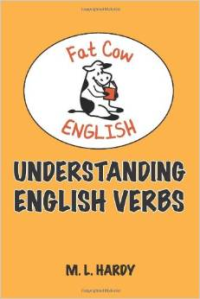Category Archives: Grammar
English Inversion #1: Why? When? How?
One of the first things you learn when you start learning English is the word order in sentences. The subject comes before the verb: SUBJECT VERB you learn … Continue reading
Relative Clauses #11: Advanced non-defining Relative Clauses
First, read the earlier posts on Relative Clauses, especially #3 and #6. Advanced non-defining Relative Clauses are not as difficult as their name suggests. There are only two Relative Clause Pronouns used, whom & which, and the Relative Clause is usually … Continue reading
Gerunds & Infinitives – What is the difference?
GERUNDS Gerunds are usually nouns but they are different from other nouns because they are made from verbs. ∗ Changing verbs into other forms: nouns or adjectives, for example, is common in many languages. Think about how your language changes … Continue reading
Present Perfect Tense – Part 1
FORM (have / has + past participle) Look at these sentences: Leo’s English improved when he started a course at Langports English College. His English is improving. His English has improved since he started at Langports. The first sentence gives … Continue reading
A Song with First Conditional, Imperatives, and Collocations
Dua Lipa sings a song, Don’t Start Now, in which she tells an ex boyfriend very clearly that their relationship is finished and she is not interested in seeing him again. Her life is so much better without him. Her … Continue reading
Phrasal Verbs: 3 Easy Rules
There are just 3 things to know if you want to understand and remember Phrasal Verbs: 1. Phrasal Verbs are Vocabulary. 2. There are two types: a)Separable and b)Non-separable. 3. When they are Separable, the pronoun must always go in the middle. 1. Phrasal … Continue reading
English Grammar Quiz
Hello English Students! The end of the year is fast approaching and I wonder how you have all managed with your English studies. Are you happy with your progress? Perhaps it’s time to test your grammar skills? I am more … Continue reading
A Song with ‘going to’ (gonna) for Future Predictions based on Evidence & ‘had better’ for Warnings
Today, I’m focusing on the song, Street Boy, by Rodriguez to highlight the use of ‘going to’ for future predictions: predictions based on evidence. Click on the picture for the video. Rodriguez has an amazing voice and you will hear … Continue reading
Gerunds & Infinitives – What is the difference?
GERUNDS Gerunds are usually nouns but they are different from other nouns because they are made from verbs. ∗ Changing verbs into other forms: nouns or adjectives, for example, is common in many languages. Think about how your language changes … Continue reading



